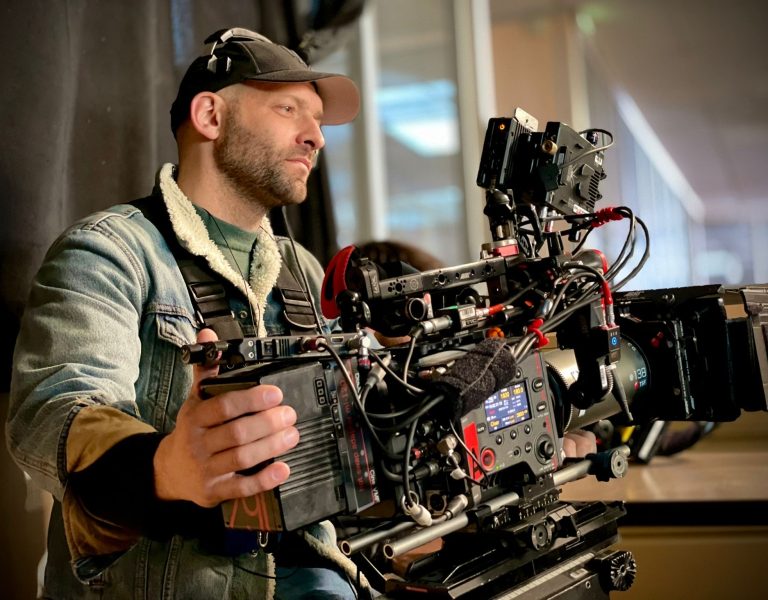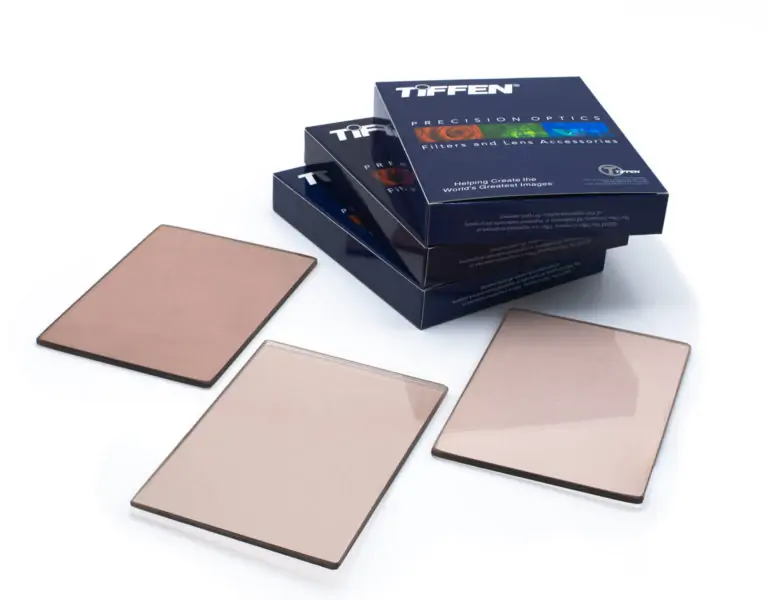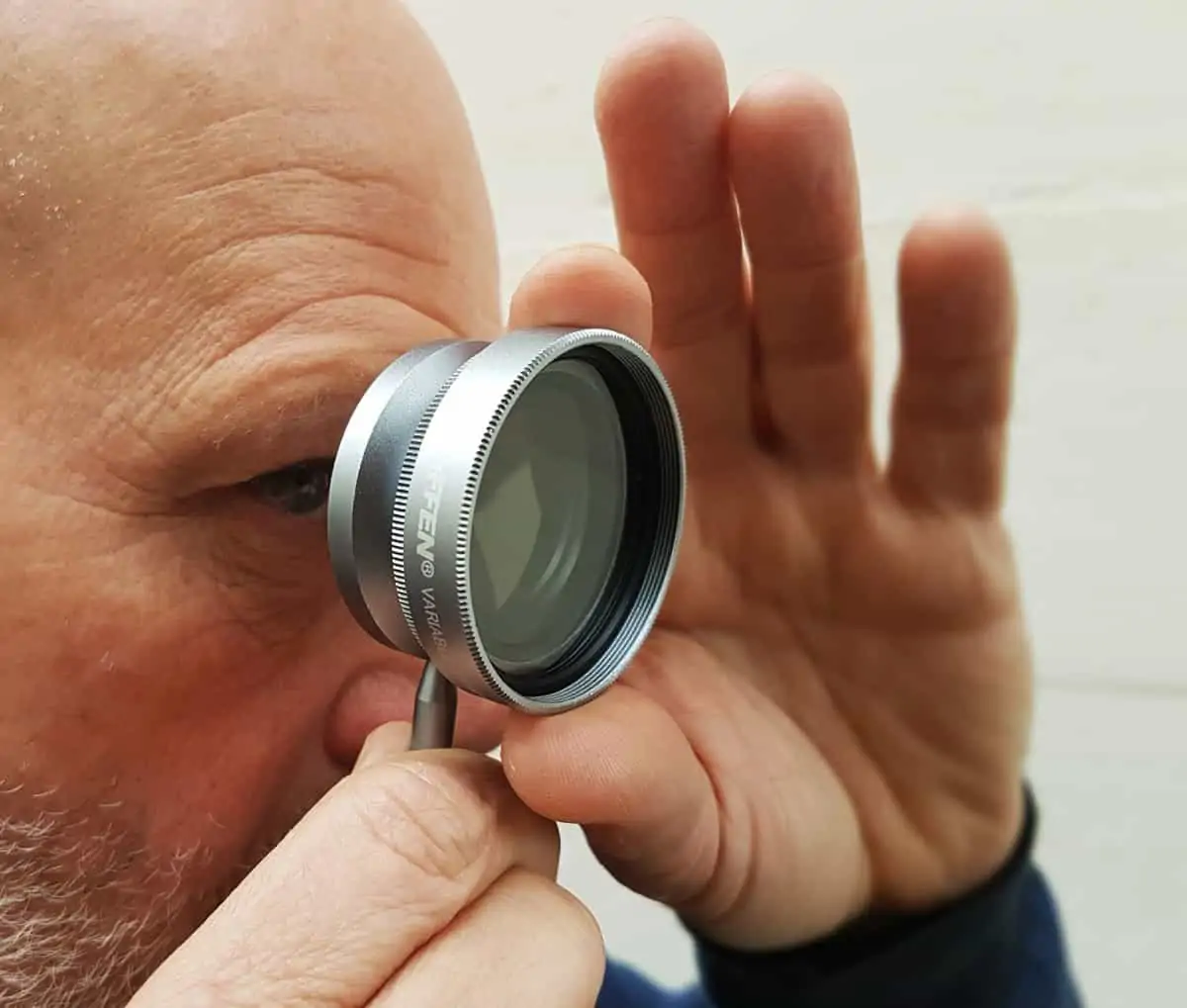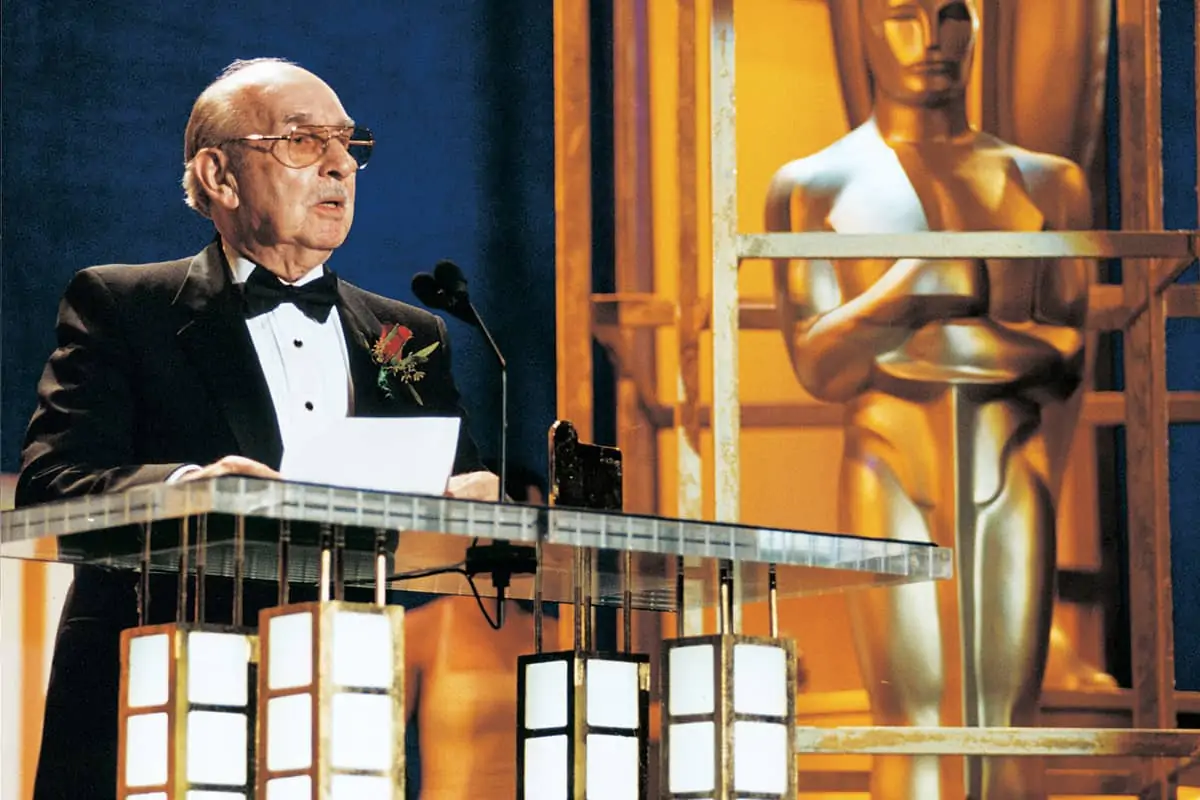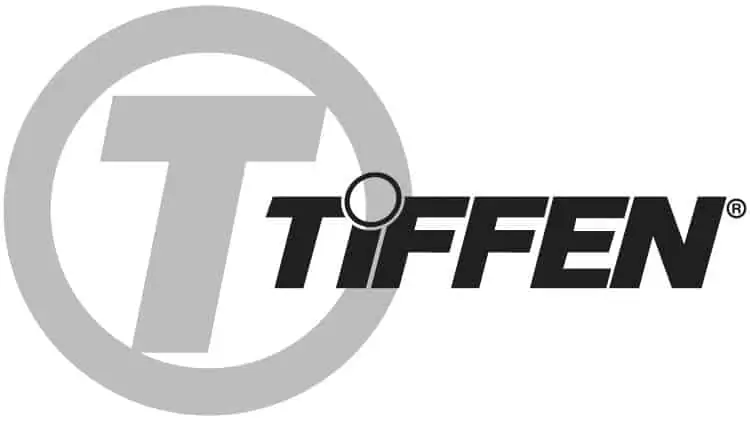Family Affair
Special Report / Tiffen Celebrates 75 years

Family Affair
Special Report / Tiffen Celebrates 75 years
Today The Tiffen Company is known worldwide as a manufacturer of camera support equipment for video, movies and stills and owns eleven well-known brands. It started in 1938 with three people, Nat Tiffen and his two brothers Leo and Sol, and was housed in a Brooklyn factory.
Seventy-five years on the company is still family-run, headed by Nat’s son, Steve Tiffen, as President and CEO. Although there have since been massive changes in the industries and technologies, including the arrival of television and digital technology, Tiffen remains dedicated to supporting videographers, cinematographers and photographers, but with a greatly expanded organisation, product range and staff.
The early days
The company started by making camera accessories for professional photographers and cinematographers, such as adapter rings and lens shades. However, what caught Nat’s attention was that the optical filters of the time were of poor quality and not very durable. It took seven years to research, develop and bring the first Tiffen filter to the market. This was not just another filter, but a major breakthrough for filter technology.
So in 1951, Nat Tiffen’s new proprietary ColorCore technology was used to manufacture Tiffen glass filters. Over the years the filter products have been refined and new models added. Users range from discerning amateurs, videographers and television production to renowned major movie cinematographers, all putting their trust in Tiffen filters to do their job accurately and consistently.
Today Tiffen manufactures the widest selection of filter colours, effects and sizes in the industry, whilst the ColorCore technology ensures that the filters are exactly the same with no colour variances. Over 2,000 filters are available, and development continues driven, in part, by the new requirements arising with digital cameras, as well as delivering new effects.
Steve Tiffen joined the company in 1982 with a focus on improving operations and manufacturing lead times, resulted in substantial growth for the company. In 1985 Tiffen received an Academy Award for ColorCore™ technology. It has since received another for the Ultra Contrast Filter Series for motion picture photography.
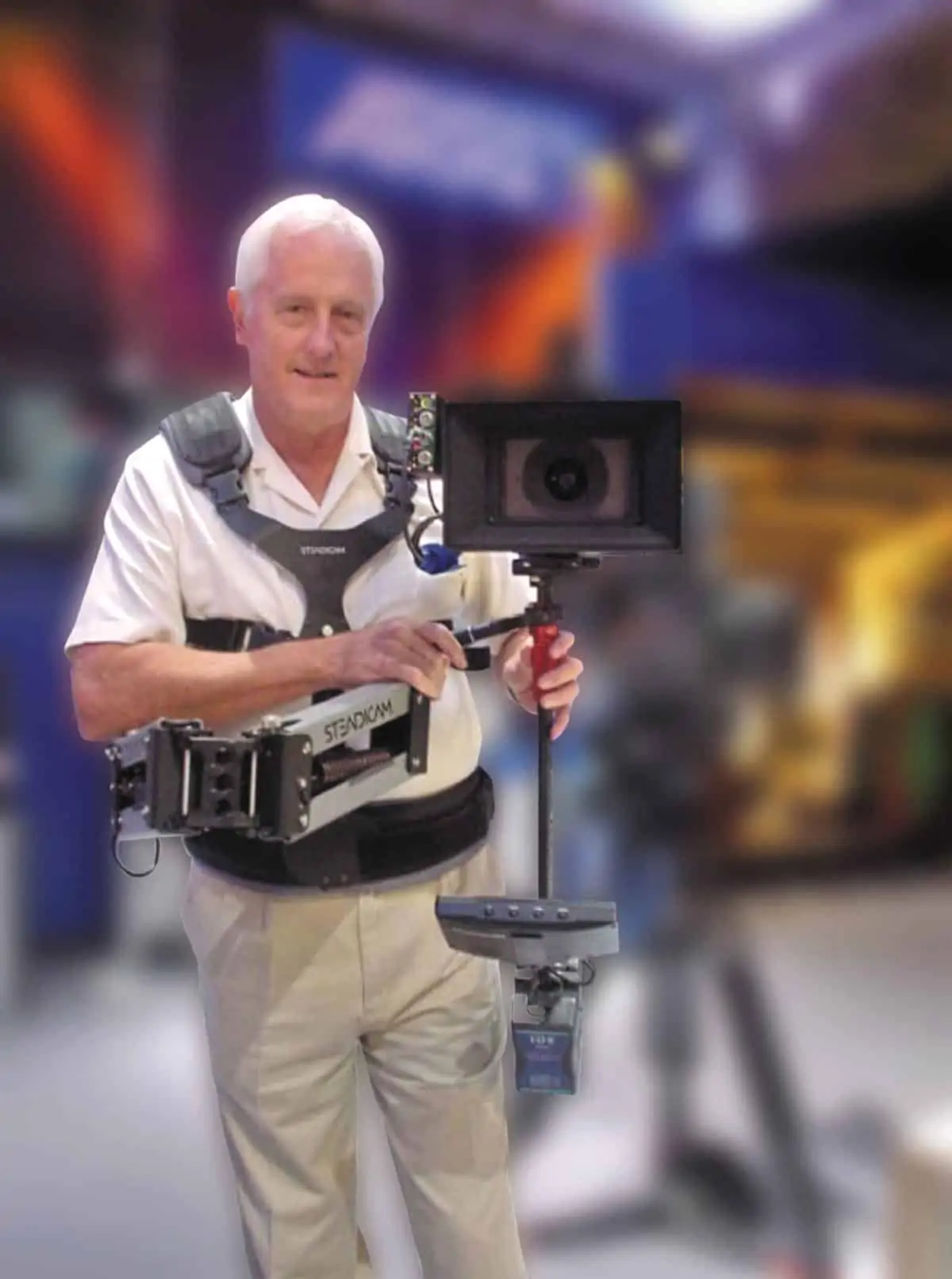
Expanding Tiffen
Steve Tiffen recognised that to grow the business, “You need to be where your customers are.” So, with a substantial part of the sales going to Hollywood, the Tiffen Technical Center was established in Los Angeles in 1989. One of its many activities has been to welcome film students to come and learn about filters.
Tiffen International was established to serve the company’s interests in the world outside the Americas, and is now based on the lot at Pinewood Studios near London. Managing Director Terry Carey says, “Being located right where the products are used makes a huge difference. It’s very convenient for many of our customers to drop in. We see more of them and learn more about their business and so how better to support them.” Tiffen International Asia-Pacific reaches the Far East, Australia and New Zealand.
Steve Tiffen has also looked for growth through acquisition. The process started with American’s oldest tripod manufacturer, Davis & Sanford. Tiffen itself has three brands. Tiffen Filters is the original business that continues to innovate and grow as the leading force in filters. It makes full use of its ColorCore technology as new filters are developed to meet new needs of the motion picture and television (MPTV) and stills industries. Also, the switch from film to digital threw up new filter requirements as digital cameras have fixed imaging sensors – so no choice of film stock – and the spectral sensitivity of the sensors is different to film, and different again between sensor models. Tiffen has worked closely with the camera manufacturers to develop suitable MPTV filter kits to ensure digital images look as they should, and not spoiled by pollution from IR or UV light. At the same time, the range of effects filters continues to enable cinematographers, videographers to create the look they want in-camera.
The recent range of combination filters, such as IRND, provide a quick reliable solution for infra red protection and light control (neutral density) in a single piece of glass. The company was awarded an Emmy in 2012 for this technology’s use with digital motion picture cameras.
More recent developments have taken this technology further with single filters providing up to four processes, such as IRND Polar Glimerglass, replacing a stack of separate filters reducing weight, space, and potential reflections. It also avoids possible condensation occurring between multiple filters.
Tiffen Dfx is digital effects software. Available for Windows and MacOS platforms, it includes accurate digital versions of the 2000+ Tiffen glass filters. This assist the selection of glass filters to create a required look in the best way – in camera. Alternatively it can be used to provide digital filter effects in post production. Tiffen Dfx is available as standalone or plug-in for Photoshop or Aperture. In a similar vein, Tiffen Photo fx and Tiffen Cool fx offer image editing for iPhone and iPod Touch.
The London Filter Company is co-located with Tiffen International at Pinewood, where it runs its hire service for Tiffen and other filters, and equipment including Transvideo monitors and radio camera links.
Another famous name in the Tiffen range is Steadicam, the camera stabilising system. Nearly four decades after its inception Steadicam’s equally famous inventor, Garret Brown, continues developing and showing new rigs working with modern cameras. Originally designed to support movie film cameras, today there are also rigs for digital movie cameras and live television operation. Recent additions include Steadicams for much lighter payloads such as the Merlin for DSLRs, the Smoothie for iPhones and the Curve for GoPro – announced at NAB this year. The range is constantly updated to deliver benefits of the latest technical developments as well as providing for the changing requirements of rig equipment.
Steadicam’s innovative technology has been recognised with an Oscar, an Emmy, and many other prestigious industry awards.
It has been said that Lowel lighting offers, “A good light you can afford. It hits a sweet spot with affordable lights that do the job well.” Founder Ross Lowel is an award-winning cinematographer, so quality and practicality runs through all the lights and accessories. The Tota light is an industry standard that can evenly light a large area. The popular Rifa is a wrap-around soft light that opens like an umbrella to set up in 60 seconds. Now the LED range offers high CRI with daylight and tungsten primes and, for the run-and-gun specialists, the Blender mixes the two temperatures and the handheld GL-1 is a focusable, dimmable, photo-quality tungsten light.
Tiffen brands also include Domke bags and accessories, Listec prompters, Genustec camera accessories, Stroboframe flash brackets and accessories, and Zing Design neoprene camera cases.
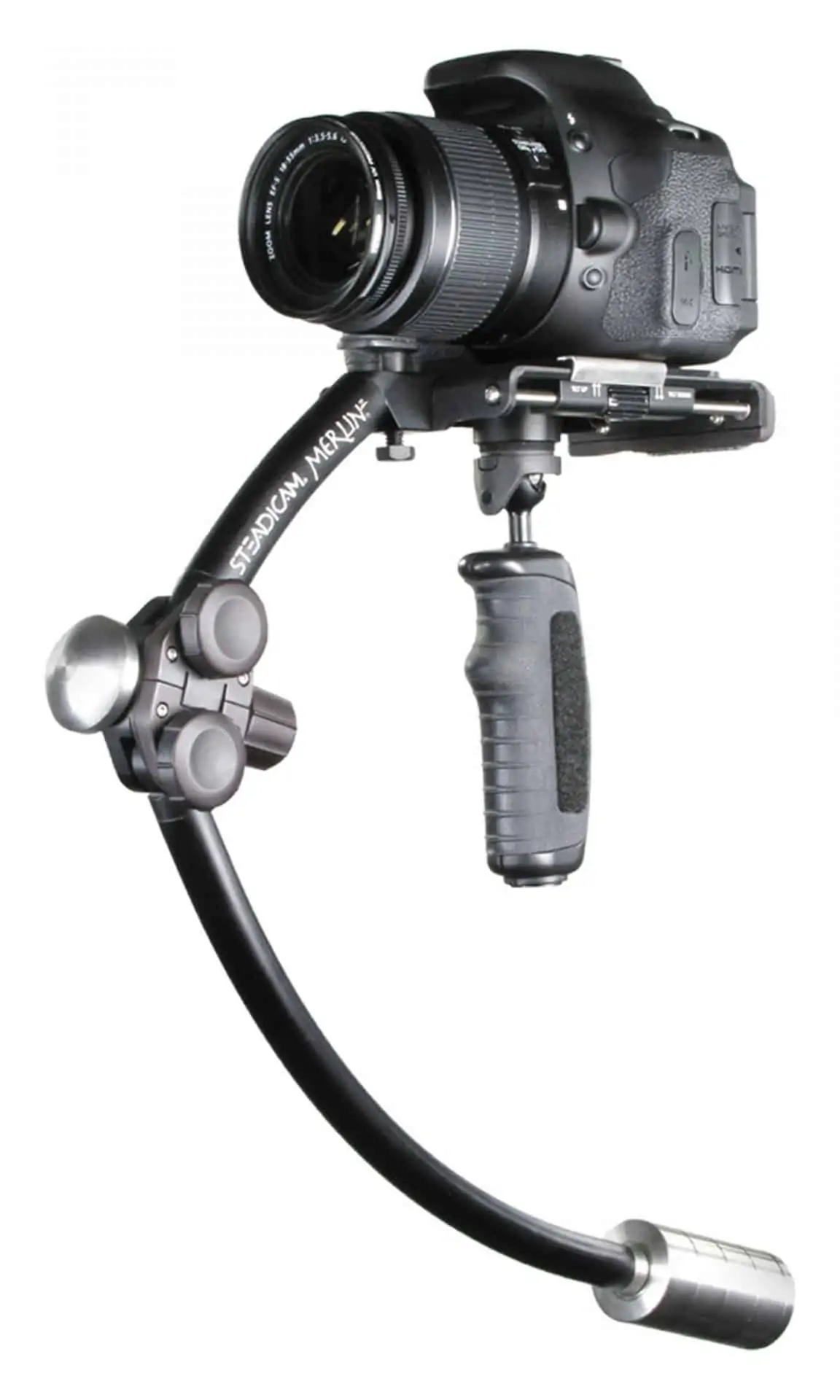
Education
Tiffen is always keen to ensure that its customers can achieve the results they want. It has a wealth of industry experts who share their knowledge to help users to meet their targets. Accordingly, Tiffen provides Steadicam classes for aspiring cameramen to learn how to set up the rig and to ‘walk the Steadicam walk’. Similarly, using Lowel lights, as with any lights, requires both creativity, understanding lighting and knowledge of the products. Lowel generously provides practical tips and shares its experience and knowledge at its online Lowel EDU. The London Filter Company can offer expert advice on optical filters.

"Anyone capturing an image, still or moving, is trying to tell a story. Our job as a manufacturer of imaging accessories is to help them tell the story their way."
- Steve Tiffen President and CEO of The Tiffen Company
Interview with Steve Tiffen, President and CEO, The Tiffen Company
What made Tiffen successful?
My father spent more time with customers out in the field than he did in the office. He knew that connecting with artists and taking the time to understand their creative needs was the key to building exceptional tools that would best serve them. I joined the company soon after college, adopting that same philosophy, working closely with camera manufacturers, photographers, cinematographers and our own Tiffen imageMAKERS to ensure we developed nothing short of the very best image accessories on the market. By sticking to the values my father established 75 years ago, we’re confident our customers will take the world’s greatest images.
Imaging technology is mostly digital now, how does Tiffen handle such change?
The first commercially available consumer digital camera we saw was in 1989. The Logitech FotoMan was VGA, tethered to the computer and very poor quality. It sold for a thousand bucks and took a black-and-white image... but it was a digital image. And you knew at that moment that the business was going to change. Then, when we analysed our company and the products and services we supply, we realised that so much of what we do isn’t media specific. It adapts and changes to whatever media you are using.
When it comes to lighting, all the requirements change for digital cameras because they are so light sensitive. We are now introducing new, different types of light but we still need light to capture an image, to tell a story and to set a mood. So our products are about helping the storyteller tell the story and capture the image, and create the look, in the way they desire. Also to move a camera in the graceful elegant way the human body moves; there’s still nothing that can do what a Steadicam can do. And, so long as there is a cinematographer behind the lens directing that image, we will always be producing products to give that cinematographer the creative control they want. That’s never going to change.
The company credo is not for us to decide how people want to capture the images. It’s just simply for us to give them the creative tools to do it the way they want. Companies get into trouble when new technologies come out because they have decided it’s their job to predict the future. Our job is only to be supportive for what people want today and tomorrow. It is not our role to define. That allows us to be flexible, and to move and change with changing technology.
Where do you see The Tiffen Company being in ten-years time?
Hopefully, doing exactly what we are doing right now. When a company defines its strategy as creating unique and differentiated products to support the industry – and ours are the imagemakers – it doesn’t really change. You just have to do it with different products and services, and in different ways. We will be talking with our customers; meeting with cinematographers, talking about their needs, their desire for creativity and the tools they want to tell their story. Anyone capturing an image, still or moving, is trying to tell a story. Our job as a manufacturer of imaging accessories is to help them tell the story their way.
We have a tag line, ‘We help create the world’s greatest images’. That’s who we are as a company. The world’s greatest image is yours. It’s the story you want to tell, the image you want to take, whether you are a consumer shooting a picture of your family, or a world-class cinematographer working on the next blockbuster movie. What you are capturing is what you believe to be the greatest image. We help you do that by giving you imageMAKER accessories, and image accessories that help you create better pictures. That’s not going to change.
The good news is that this strategy will work well on into the future. We have to do our job right and stay close to our customers. We do a lot of workshops, listening to feedback and talking to our users. It is not for us to decide what creative tools you want. It’s for you to share it with us and for us to create it. So, ten years from now, if we do our job right and continue to do what we are doing, the product and service may be different as they adapt to new needs, but the way we do business will be the same.

